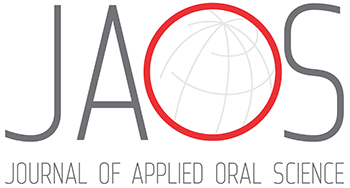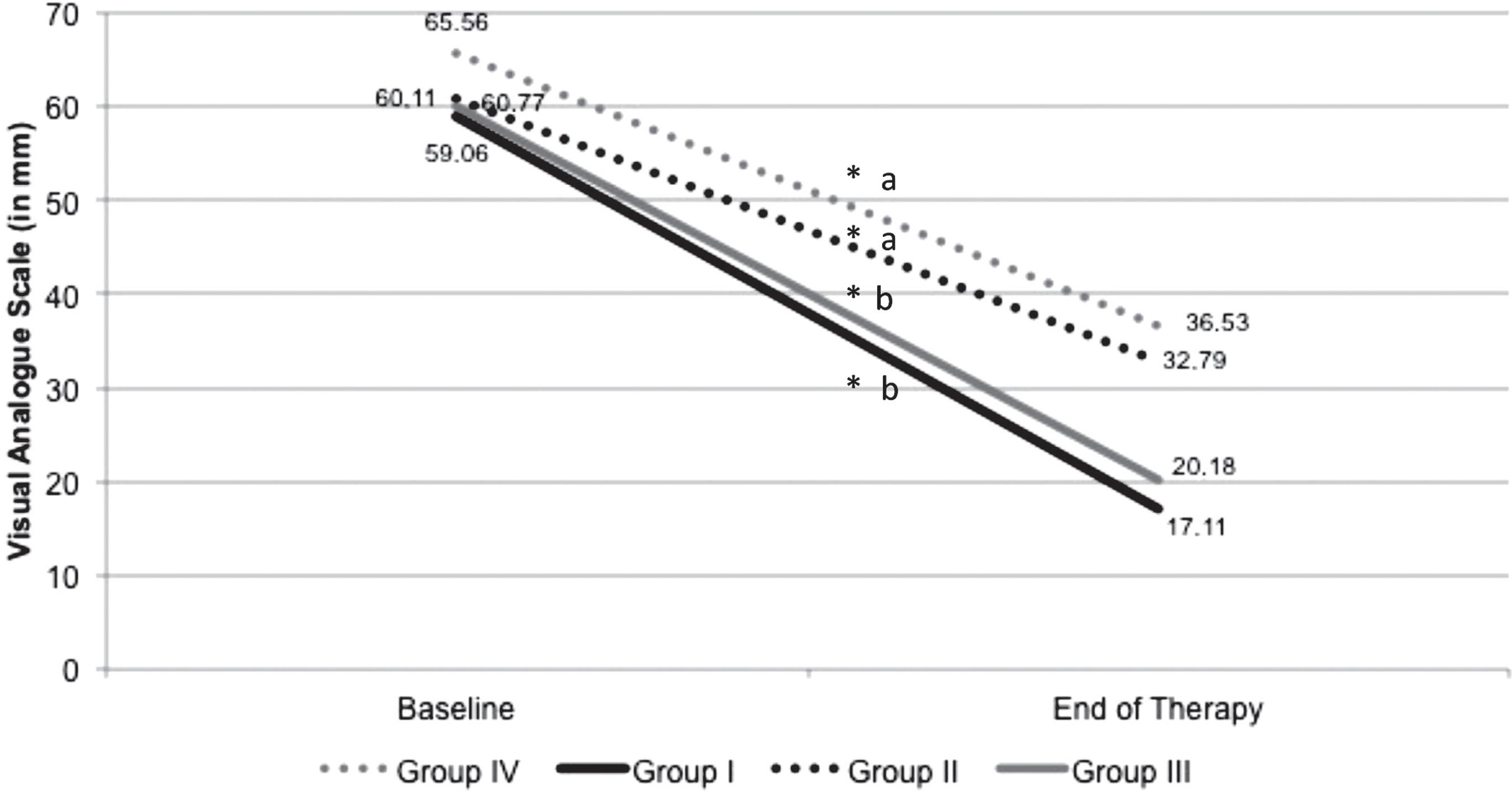OBJECTIVES:
This cross-sectional study aimed to evaluate the influence of Primary Headache (PH) on efficacy of a Temporomandibular Disorders (TMD) conservative therapy and its association with the presence of self-reported parafunctional habits.
SAMPLE AND METHODS:
Sample was composed of 400 medical records, divided into four groups: I) Muscular TMD (n=64); II) Muscular TMD+PH (n=48); III) Muscular TMD+Articular TMD (n=173); IV) Muscular TMD+Articular TMD+PH (n=115). All groups had undergone a TMD therapy for three months with a stabilization appliance and counseling for habits and behavioral changes, with no specific headache management. Current pain intensity and existence or not of self-reported bruxism were assessed. Repeated measures ANOVA and Chi-Square test followed by Odds were used for statistical analysis, with a significance level of 5%.
RESULTS:
results of this study showed that: (1) A conservative therapy with stabilization appliance and counseling for habits and behavioral changes was effective in the TMD pain relief; (2) Groups with an additional diagnosis of PH had worsened the pain improvement significantly; and (3) no association between the presence of self-reported bruxism and PH was found.
CONCLUSIONS:
this study could elucidate the important effect that headache may have on the TMD management.
Facial pain; Temporomandibular joint disorders; Headache; Therapy

